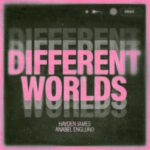While many Studio Ghibli films capture audiences' wild imagination with their whimsical characters and magical locations, the movies are most remembered for the poignant way they touch the soul. One of Studio Ghibli's most underrated gems, 1991's Only Yesterday is one such realist drama that is a powerful ode to nostalgia and reconnecting to life's deeper meanings.
Only Yesterday, directed by Isao Takahata, is a realistic story of Taeko, a 27-year-old woman living a humdrum life in Tokyo. Upon feeling intense wanderlust, she takes a long holiday to visit some distant family members in the countryside to help with their safflower harvest. During her trip, Taeko recalls various childhood memories of family dysfunction, puberty and first crushes. Her time in the countryside is a transformative experience that connects her to her younger self, leaving her to wonder if she has built a life her childhood self would be proud of.
While there are no witches or fantastical castles, like in Howl's Moving Castle or Spirited Away, the safflower fields are imbued with just as much sun-soaked wonder and natural mysticism. Only Yesterday is a quiet, reflective drama that focuses on subject matter not usually covered by animated features: womanhood and the pangs of an unfulfilling career and love life. The film explores the nature of how people change over time, losing their childhood innocence, yet are still plagued by the same idealistic desires in adulthood.
The film feels exceptionally intimate since most of the flashbacks to Taeko's childhood are not concerned with the significant milestones of adolescence but instead are small moments that stick in the back of one's brain for decades. Taeko as a child is as moody as she is endearing, making her feel well-rounded and relatable. Although the film gives adult Taeko a love interest on the safflower farm, the real love story is between Taeko and her younger self. Throughout Only Yesterday, Taeko learns to love and honor herself by reconnecting with her childhood and actualizing her desires for a new life.
While Only Yesterday does have an uplifting ending, the beautiful exploration of the past and its reoccurrence in the present is both a melancholic and sentimental journey that will induce tears. The film works on two powerful levels: a nostalgic ode to childhood and a soulful search for fulfillment in life. Takahata weaves together two character arcs for Taeko at both ages that merge in one affirming conclusion and a new beginning.
What Only Yesterday lacks in unique magical elements, it makes up for in affecting sentiments that linger well past their time. The safflower fields' imagery alone is suffused with enough tender meditation and wistfulness to rival the Studio Ghibli realm's most awe-inspiring scenery. Only Yesterday is a soft-spoken masterpiece that still delivers one of the studio's most enchanting and emotional messages. It has been unfairly left out of many of Studio Ghibli's greatest hits conversations, being overshadowed by the more embellished and intense greats in the Miyazaki pantheon.
Unfortunately, many people have slept on the touching story about an unexplored subject matter that packs a punch in its small packaging. At its heart, Only Yesterday's power lies in the subtleties, where the vital phenomena in life reside.


